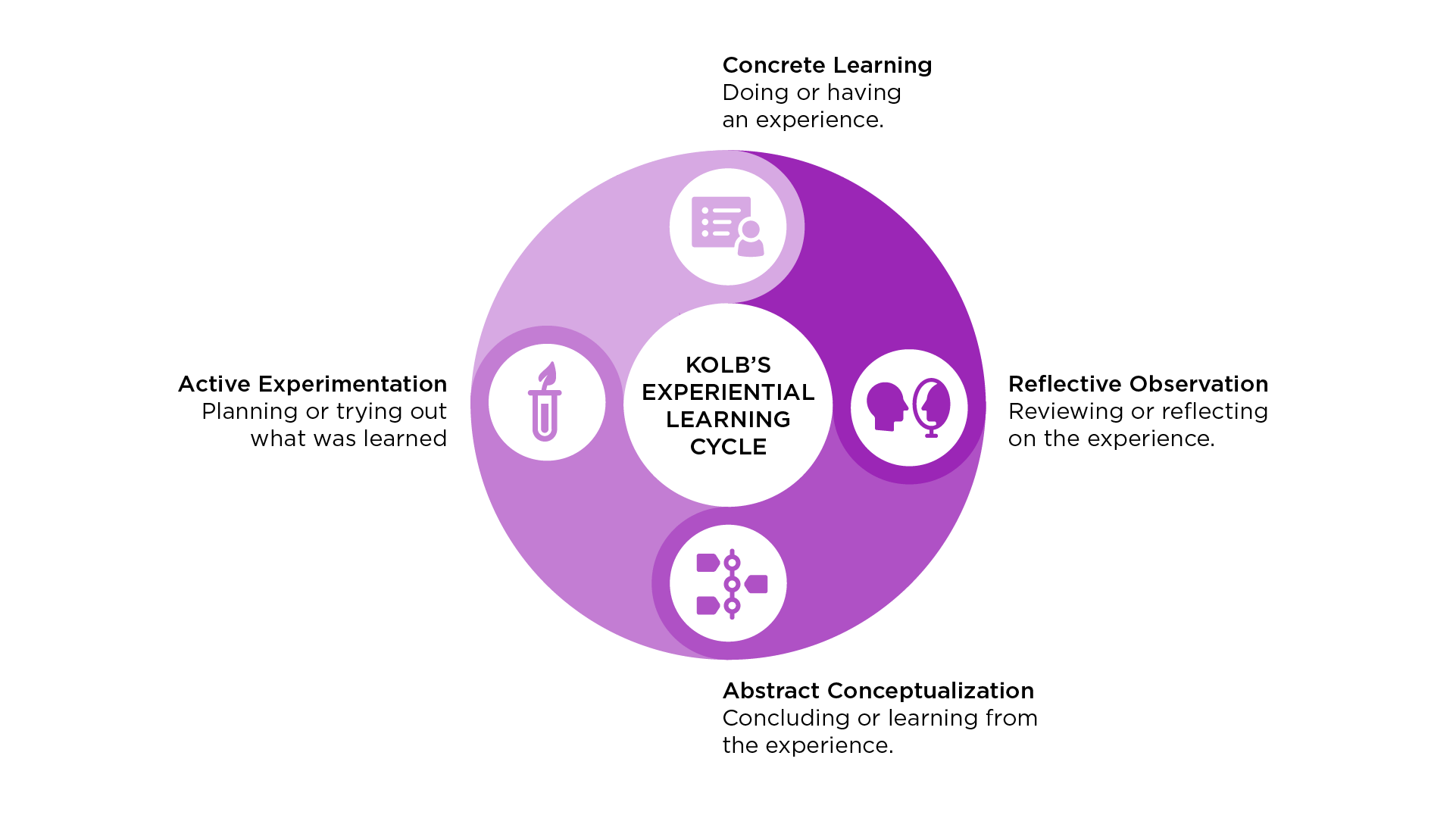Experiential learning is the process of gaining knowledge through personal, hands-on or on-the-job experience. David Kolb is a psychologist who developed a theory of experiential learning that organizes the process, or cycle, of experiential learning into four stages:

1. Concrete Learning
The first stage involves learning and performing a new skill individually or in a group. For example, when learning how to give feedback, participants in a new manager training program might discuss the principles of good feedback and practice those principles in pairs.
2. Reflective Observation
The second stage involves reflecting on stage 1. For example, manager trainees might write a short journal entry reflecting on what they learned and how they practiced it or give their partners feedback on their performance during the activity.
3. Abstract Conceptualization
The third stage involves making connections between ideas, adjusting previous beliefs based on new information and consolidating learning. For example, manager trainees might reflect on feedback they’ve received in the past and how it aligned with the best practices they learned.
4. Active Experimentation
The final stage involves putting new skills into practice. For example, managers might practice feedback skills in coaching sessions with more experienced leaders and then apply those skills in actual performance reviews with team members.
Related Content:
- Infographic: 5 Ways Experiential Learning Programs Can Improve Training
- Training Industry Magazine: Experiential Learning
- The Business of Learning Podcast, Episode 38 — Experiential Learning: How to Support “Learning by Doing”